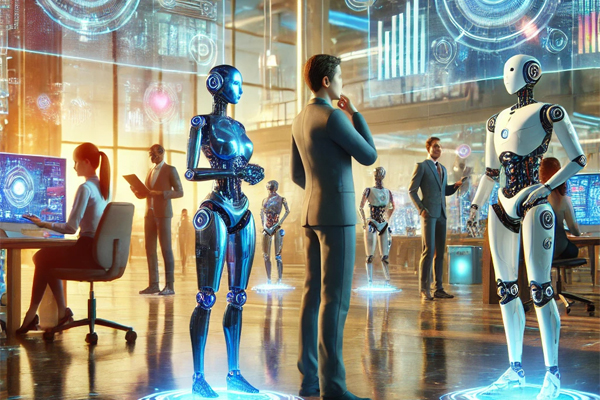by Ammar Aftab Raja|Lecturer - Department of Information System | Dr Hasan Murad School of Management
Artificial Intelligence (AI) is no longer the stuff of science fiction—it's now integrated into our daily lives in ways we often don't even realize. One of the most transformative elements of AI is the AI agent, a tool that's rapidly changing industries and the way we interact with technology.
What are AI Agents?
At their core, AI agents are software programs that perform tasks on behalf of users. Unlike traditional software, AI agents have the capability to learn, adapt, and make decisions. They operate autonomously, executing tasks based on predefined rules and, increasingly, on their ability to understand and interpret data.
Types of AI Agents
1. Reactive Agents: The simplest form, these respond to specific stimuli based on pre-programmed rules without memory or learning capabilities.
2. Limited Memory Agents: They make decisions based on both current and past data, used in applications like self-driving cars.
3. Theory of Mind Agents: These aim to understand and predict human emotions and social interactions, making interactions more natural.
4. Self-Aware Agents: Possessing a sense of self-awareness, they can understand their own state and use this understanding to make complex decisions. This type is still in research and development.
Application of AI Agents
- Customer Service: AI agents like chatbots provide 24/7 support and handle routine inquiries.
- Healthcare: They assist in diagnosing diseases, managing patient records, and providing virtual therapy sessions.
- Finance: In finance, they analyze market trends, manage portfolios, and offer personalized financial advice.
- Education: AI agents personalize learning experiences and provide students with tailored educational content and real-time feedback.
The Future of AI Agents
As AI technology evolves, the potential applications of AI agents are limitless. They will become more intelligent, adaptable, and integral to our daily lives. However, with growth comes the need for ethical considerations and regulations to ensure they are used responsibly.
Conclusion
AI agents are actively shaping our present and understanding their capabilities is crucial for anyone looking to stay ahead in the ever-evolving technological landscape. As we harness the power of AI agents, the key will be to balance innovation with ethical considerations, ensuring these powerful tools are used for the greater good.
